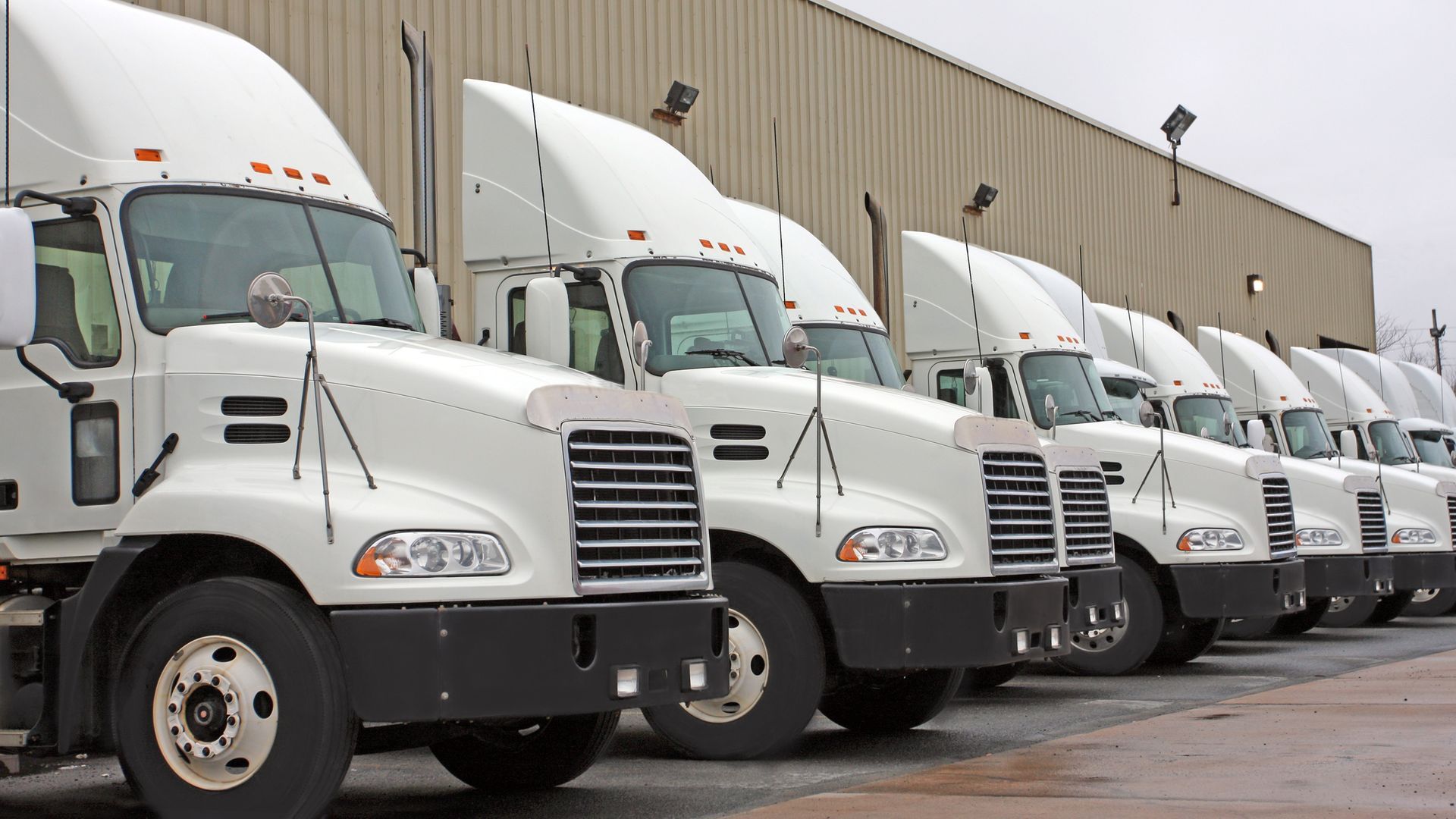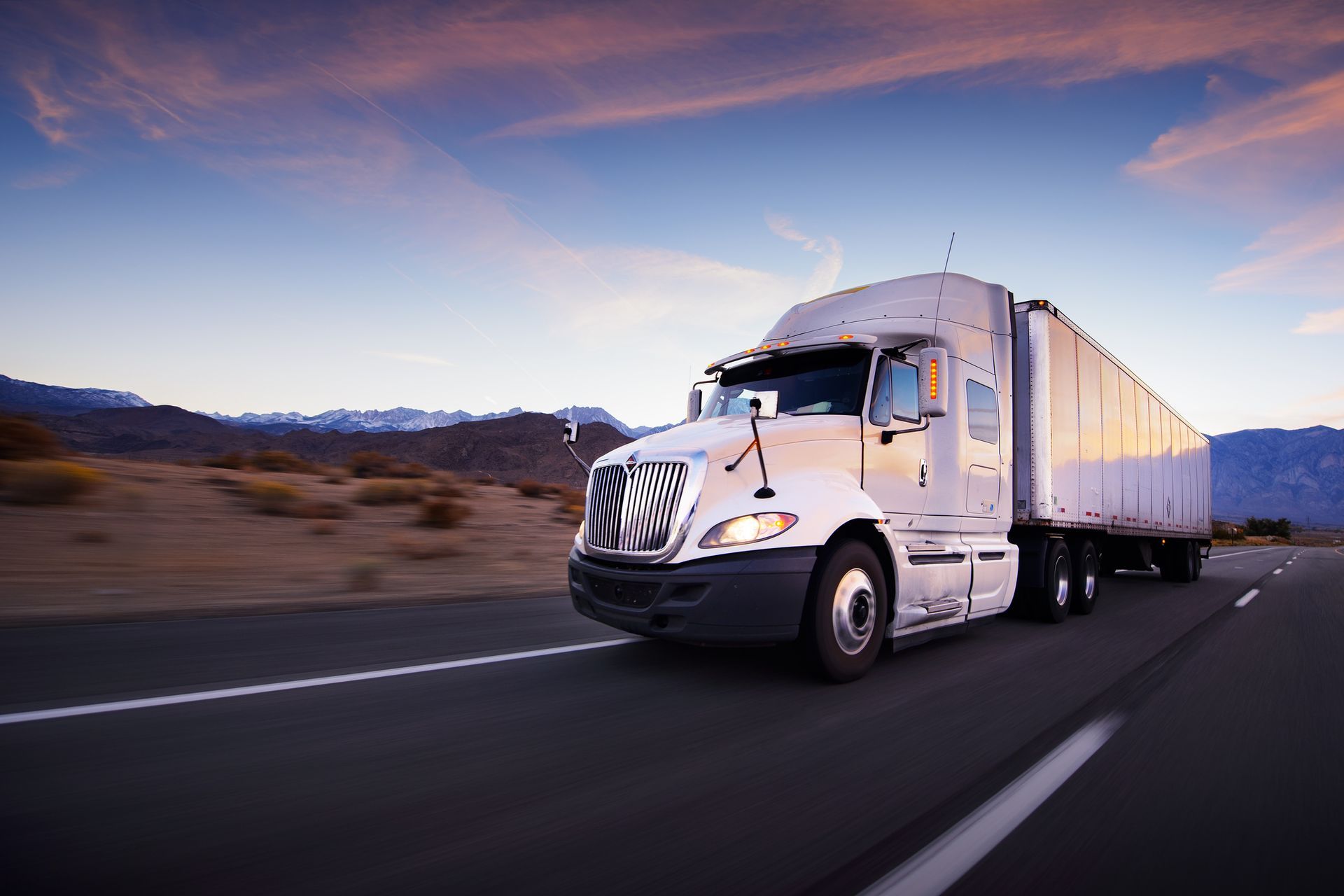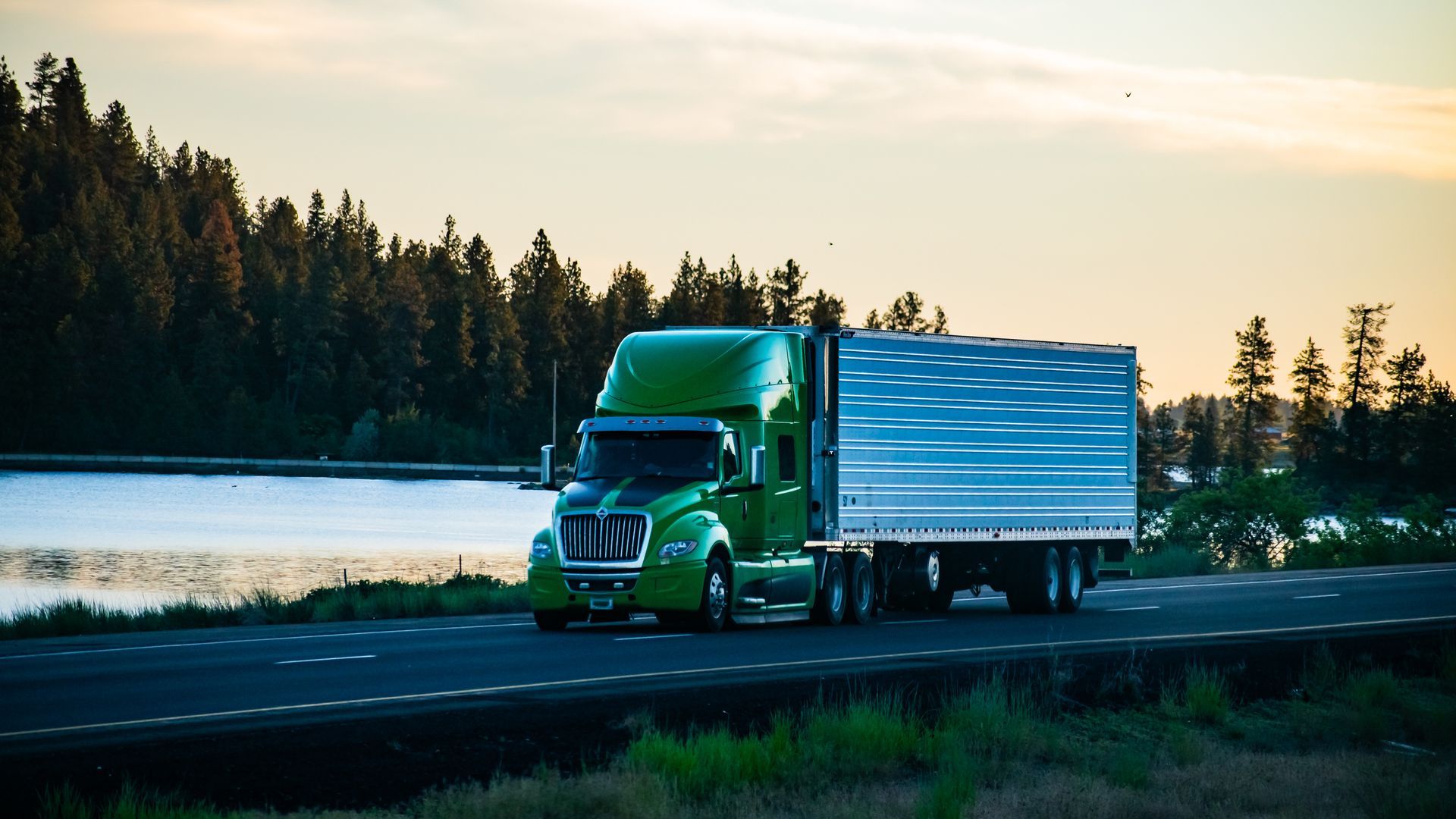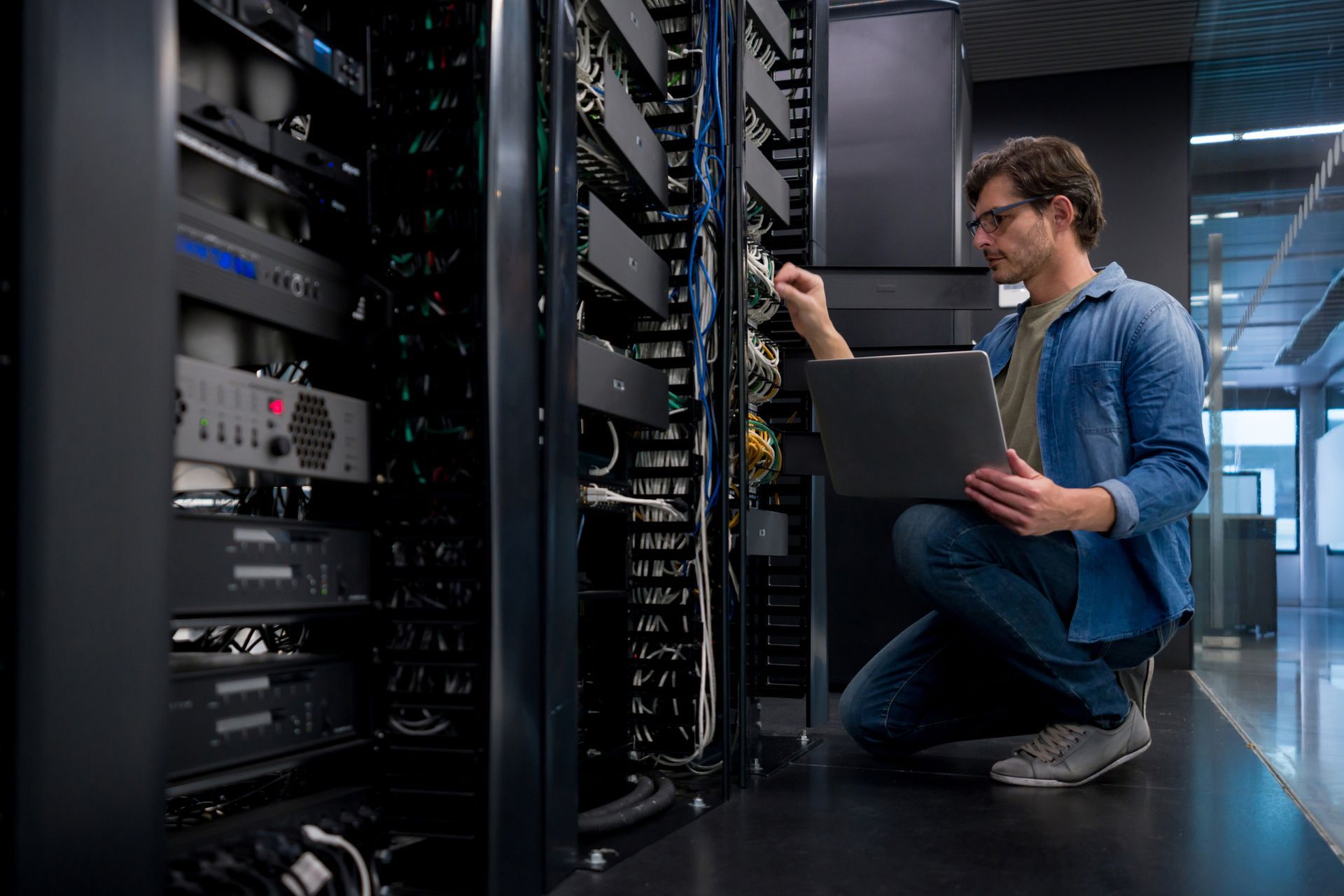When we think of the primary targets for cyberattacks, oftentimes industries like finance and technology come to mind. Yet, transportation and logistics have increasingly been in the crosshairs for hackers, and it’s no surprise why. Trucking and logistics companies are big players within the global supply chain, and these high-value companies make attractive targets for ransomware and other forms of cybercrime.
Transportation & Logistics: The Increasing Target for Cybercrime and How to Protect Your Business
Transportation and Cybercrime
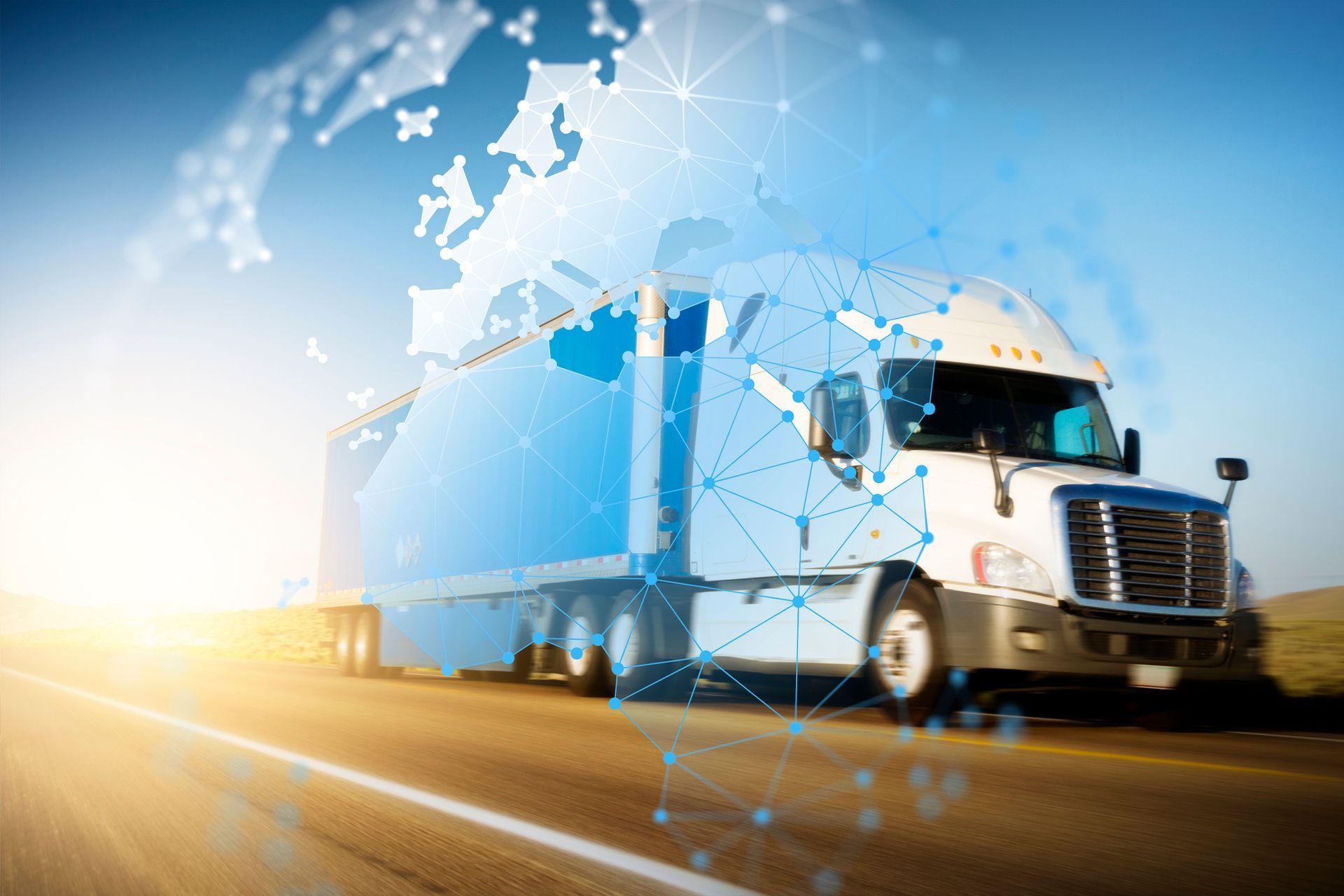
Below, we take a closer look at why cybercriminals are eyeing transportation and logistics, and what you can do to make sure your company and its data are protected.
Why Is Transportation & Logistics a Common Target for Cybercrime?
High-Value Data to Exploit
From personally identifiable customer information (such as addresses and purchase history) to financial records and other logistics details, the transportation industry holds a wealth of valuable data. This sensitive information can be used by bad actors to facilitate fraud, sold on the dark web, or held in exchange for ransom payouts.
High Potential Payout
With so much high-value data at stake, trucking and logistics companies often have no choice but to pay what cybercriminals ask. Clever hackers know ransomware attacks on transportation companies can yield high payouts. Companies are often willing to pay large ransoms to regain control over their systems, prevent downtime, and protect their information.
Reliance on Technology
Nearly every touchpoint throughout the supply chain is managed electronically. Trucking and transportation companies rely heavily on technology to manage operations, and any device that’s connected to a network creates a potential entry point for hacking. For example, software and systems are used to track shipments, manage inventory, and communicate with drivers, among other critical tasks.
Cybersecurity Vulnerabilities
There are several characteristics of logistics companies that make them more vulnerable to cyberattacks. For one, they often don’t provide adequate cybersecurity training to educate their staff on what to look for and how to avoid attacks. For another, many use outdated equipment and legacy systems, which lack the up-to-date security solutions that help keep modern businesses protected.
Additionally, many trucking companies have centralized hubs, where all data is stored on a single, local network. There may be a single dedicated IT team member whose responsibilities include overseeing the full IT infrastructure for a large trucking corporation. In such scenarios, it’s unlikely that the company
Examples of Ransomware Attacks on Trucking & Transportation Companies
Even with the knowledge that trucking companies are common targets for cybercrime, it can still be difficult to envision just how significant the impact of an attack can be. Let these standout events be a warning of what can occur when businesses fail to put the proper safeguards in place.

1) CMA CGM
In September 2020, French shipping company CMA CGM sustained a ransomware attack that left its IT systems paralyzed. Just under a year later, the company suffered a data breach in which personal details of customers were leaked.
2) Toll Group
Australian logistics company Toll Group experienced a suspension of its IT systems due to a ransomware attack in May 2020. It had experienced a previous disruption just three months earlier due to malware.
3) Colonial Pipeline
One of the most notorious cybercrime events in the U.S. was the ransomware attack which led to the shutdown of the Colonial Pipeline, a major fuel operator, to suspend operations for several days. Fuel shortages and rising prices have even been attributed to the May 2021 event.
4) Transdev
French public transport company Transdev was hit by ransomware in July 2021, leading to a widespread disruption in its operations.
5) Central Freight Lines
In December 2020, Texas-based carrier Central Freight Lines experienced a cyberattack which suspended operations in its call center. Fortunately, the carrier was able to make a prompt, full recovery by enlisting the help of third-party experts—none other than IT ArchiTeks.
Preventing Cybercrime in Transportation & Logistics
As in any industry, preventing ransomware attacks and other types of cybercrime calls for a comprehensive approach. It’s not a one-and-done fix, such as a single training session to educate staff or one type of software you can install. Threats are constantly evolving, and the solutions you deploy to mitigate them must match their agility and sophistication. Your cybersecurity framework must therefore be advanced enough to not only respond to threats as they arise, but actually seek out and actively destroy them, and it must keep pace with technological developments.
With that in mind, there are some best practices you can start pursuing right now to enjoy a safer and more secure network within your trucking or logistics company. Here are a couple to consider.
Moving Your Transportation Company’s Infrastructure to Microsoft Azure

Moving your company’s infrastructure to Microsoft Azure is a fairly simple yet powerful way to mitigate data security risks. Logistics companies that make the switch can enjoy several benefits, including:
- Cost savings: With pay-as-you-go pricing and the option to leverage existing licenses, Azure has a cost-effective approach many logistics companies find attractive when trying to control overhead costs and maximize their bottom line.
- Disaster recovery: Azure offers a range of disaster recovery options to help transportation companies promptly recover their infrastructure in the event of a disaster or outage.
- Integration: Azure integrates well with other Microsoft tools and services, including Microsoft 365, Dynamics 365, and Power BI. Seamless integrations can help transportation companies streamline their operations and minimize hassle for all employees.
- Data analytics: With robust data analytics capabilities, Azure can provide transportation companies with key insights into operations, including trends and other data points that will help drive informed decision-making.
- Global reach: Azure has a vast global footprint, with data centers located around the world. This is especially important for transportation companies seeking to maintain excellent service across different regions.
- Scalability: Businesses can easily scale up or down based on demand when using Azure. Transportation companies can adjust their infrastructure to handle fluctuations in demand, such as during peak shipping seasons.
- Security: Perhaps most importantly, Azure boasts a comprehensive set of security controls and compliance certifications that can help transportation companies secure their infrastructure and data.
Upgrading to Co-Managed IT
Many transportation companies have appointed IT personnel, but the size and scope of their IT departments are often limited. They must dedicate the majority of their internal resources to key priorities, such as timely deliveries and safety. As a result, they often don’t have the manpower to keep up with the ever-changing cyberthreat landscape.
Partnering with a advanced managed IT services provider and cybersecurity expert like IT ArchiTeks enables your logistics company to improve the overall operation security of its IT infrastructure. We’ll act as an extension of your team to provide a full range of network support and IT services, including cybersecurity-focused solutions like:
- Business security policies and implementation
- Advanced firewall threat management
- 24/7/365 Advanced Cyber Protections
- Security rules-based network control
- Data management , including high-value data encryption and data backups
This is just a glimpse into what we can do to help your transportation company sustain data and network security. As IT and cybersecurity experts in the trucking & logistics industry , we’re well-versed in developing customized solutions to fit the unique needs of each trucking and transportation company based on their unique risk profile. Get in touch today to find out more about how we can equip your transportation company with advanced cybersecurity measures and seamless IT management services.
The post Transportation & Logistics: The Increasing Target for Cybercrime and How to Protect Your Business appeared first on IT ArchiTeks.
